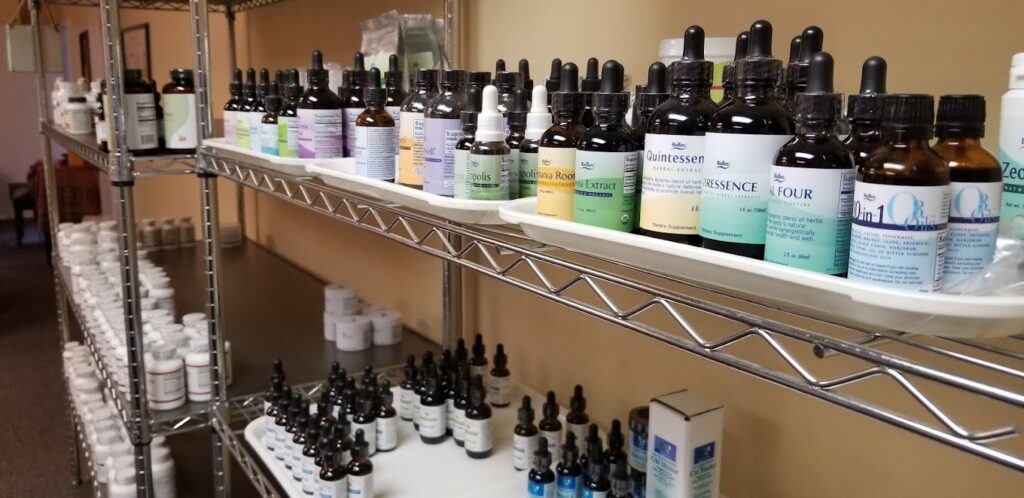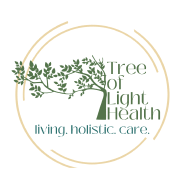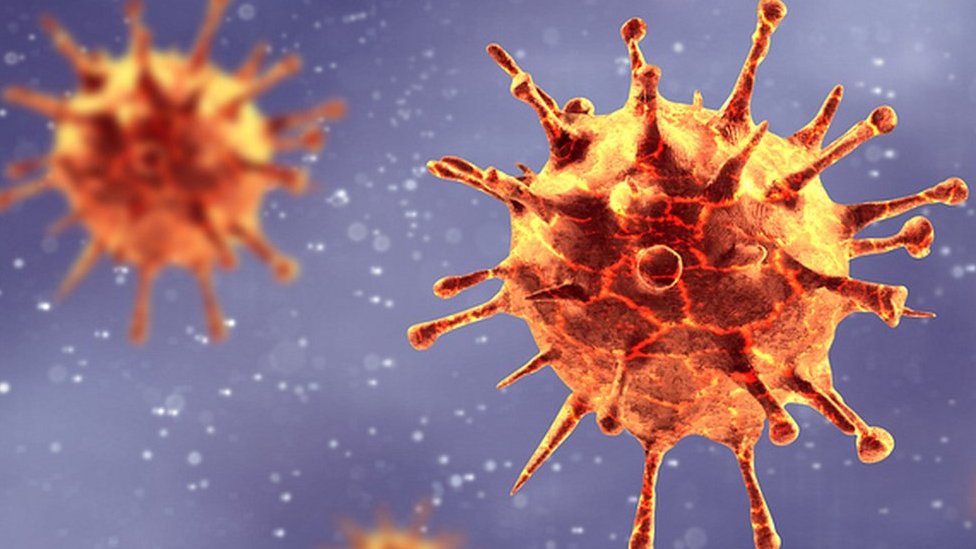Well, folks, I am sure you have known someone who has either gotten sick with COVID or has it. In the ongoing battle against COVID-19, particularly with the emergence of new strains like the FL.1.5.1 (FLIRT) variant, it’s crucial to prioritize natural and holistic approaches to bolster our immune defenses. Our holistic practice emphasizes using herbal remedies, nutritional support, and lifestyle interventions as the first line of defense, particularly given the recent changes in the cost and accessibility of conventional treatments.
Covid-19 isn’t the only problem
There is a notable increase in respiratory illnesses as we move through late summer, particularly as children return to school. This surge is not primarily driven by COVID-19 but rather by other common respiratory viruses, including rhinoviruses and possibly some non-polio enteroviruses. These viruses are known to cause cold-like symptoms, often mistaken for seasonal allergies or even mild COVID-19, given the overlap in symptoms such as runny nose, sore throat, cough, and headache.
Rhinoviruses are the most common cause of the common cold and are particularly active during this time of year. While typically mild, these infections can still cause significant discomfort, especially among children and those with weakened immune systems. Symptoms generally last about a week, though they can persist longer in some cases.
Given the timing and the similar symptoms, it’s essential to differentiate between these viruses and other more serious conditions like COVID-19 or the flu. Testing may be recommended if symptoms are severe or persistent, mainly to rule out COVID-19 or RSV, which can be more dangerous for vulnerable populations like young children and the elderly
Prioritizing Natural and Herbal Remedies
Herbal supplements have been at the forefront of our naturopathic approach to preventing and managing COVID-19. One of the most promising herbs is Andrographis, known for its potent antiviral and immune-boosting properties. Traditionally used to reduce the severity of upper respiratory infections, Andrographis may also help in managing symptoms of COVID-19, including the FLIRT strain. Preliminary studies indicate its potential to shorten the duration of symptoms and enhance overall immune response.
Echinacea is another staple in our practice, widely recognized for its ability to modulate the immune system. While its specific effects on COVID-19 are still under investigation, Echinacea’s long-standing reputation in managing respiratory infections makes it a valuable tool in our arsenal. It may help reduce the severity of symptoms and support quicker recovery.
Cistus Incanus, a less commonly known but highly effective herb, offers promising antiviral properties. Studies suggest that it may inhibit viral replication, including that of coronaviruses, making it a beneficial supplement for both prevention and early intervention.
Licorice Root (Glycyrrhiza glabra) is another powerful ally in the fight against COVID-19. Its antiviral, anti-inflammatory, and immune-boosting properties are well-documented. Research indicates that compounds found in licorice root can inhibit the replication of SARS-CoV-2, the virus responsible for COVID-19. Incorporating licorice root into a holistic treatment plan can enhance the body’s natural defenses against the virus.
Integrative Therapies to Support Immune Health

Beyond herbal remedies, other integrative therapies play a critical role in our approach to COVID-19. Infrared saunas, which utilize hypothermia therapy, are highly valued for their ability to induce mild hyperthermia. This process can mimic a fever-like state, enhancing immune response and potentially reducing viral load. By increasing white blood cell production and improving circulation, infrared saunas offer a natural method to support the body’s fight against infections like the FLIRT strain.
Glutathione, a powerful antioxidant, is another cornerstone of our approach. Glutathione helps protect cells from oxidative stress, supports detoxification, and bolsters immune function. During severe viral infections, glutathione levels can deplete, making supplementation crucial. Whether taken orally or administered intravenously, glutathione can reduce oxidative stress, support lung function, and improve overall outcomes.
Sunlight plays a fundamental role in immune health as a source of vitamin D and its broader benefits. Exposure to sunlight stimulates vitamin D production, a critical nutrient that modulates the immune response and reduces inflammation. Moreover, sunlight exposure has been shown to improve mood, regulate circadian rhythms, and enhance overall well-being—factors that collectively strengthen the immune system’s ability to combat infections.
The Impact of COVID-19 on Dormant Viruses and Long COVID
COVID-19’s impact on the immune system extends beyond the acute phase of the infection, potentially triggering the reactivation of dormant viruses within the body. Viruses like Epstein-Barr (EBV), cytomegalovirus (CMV), herpes zoster (which causes shingles), and Coxsackie viruses often lie dormant within our cells, kept in check by a healthy, functioning immune system. However, the stress that COVID-19 places on the immune system can weaken these defenses, allowing these latent viruses to reactivate. This reactivation can contribute to a range of symptoms that persist long after the initial COVID-19 infection has cleared, leading to what is now recognized as long COVID.
Long COVID is characterized by a wide array of lingering symptoms, including chronic fatigue, brain fog, muscle aches, and neurological disturbances, among others. The reactivation of dormant viruses is believed to play a significant role in these symptoms, as the body simultaneously struggles to manage multiple viral threats. This condition unearths an underlying weakened immune system, revealing vulnerabilities that may have existed unnoticed before the COVID-19 infection.
Addressing long COVID requires a holistic approach to restore immune balance and resilience. At our practice, we focus on supporting the immune system through a combination of herbal remedies, nutritional support, and lifestyle modifications. Herbal antivirals like Andrographis and immune-modulating herbs such as Echinacea can help manage the reactivation of these latent viruses. Additionally, therapies that reduce inflammation, support detoxification, and enhance overall vitality are crucial in helping the body recover from the prolonged immune stress caused by both COVID-19 and the reactivation of dormant viruses. By addressing these underlying immune deficiencies holistically, we aim to alleviate the symptoms of long-term COVID-19 and strengthen the body’s defenses against future health challenges.
Conventional Treatments and the Rising Costs of Pharmaceuticals
While natural therapies are our primary focus, we also recognize the role of conventional treatments in managing COVID-19. Paxlovid, an antiviral medication that has been widely used to reduce the severity of COVID-19, particularly in high-risk patients, has recently seen a significant price increase. With the cessation of government subsidies, the cost of Paxlovid has risen to approximately $1,500 per course. Although insurance may cover some costs, patients still face out-of-pocket expenses of around $400. This price hike underscores the importance of exploring natural and affordable therapies to manage and prevent COVID-19.

Other conventional treatments, such as Remdesivir and Molnupiravir, remain available, primarily for hospitalized patients or those at high risk of severe disease. However, the accessibility and affordability of these treatments remain a concern, further highlighting the need for comprehensive, natural approaches that empower patients to take charge of their health.
Conclusion
Like other COVID-19 variants, the FL.1.5.1 (FLIRT) strain presents challenges that require a multifaceted approach to health and wellness. By prioritizing herbal remedies, integrative therapies, and lifestyle interventions such as sunlight exposure, we can provide a robust defense against this virus. While conventional treatments like Paxlovid remain part of the broader strategy, the rising costs make it more critical than ever to focus on natural, holistic methods that support the body’s innate ability to heal and protect itself.In Health,
Martin Van Lear, APRN, MSN, ABAAHP, FNP-CTree of Light Health, LLC. Living. Holistic. Care2545 Lawrenceville Highway, Suite 150Decatur, GA 30033Office: 404-877-2385
Fax: 833-535-7165www.treeoflighthealth.com

References
Zhang, L., & Liu, Y. (2020). Potential interventions for novel coronavirus in China: A systematic review. Journal of Medical Virology, 92(5), 479-490.
Tillu, G., Chaturvedi, S., Chopra, A., & Patwardhan, B. (2020). Public health approach of Ayurveda and Yoga for COVID-19 prophylaxis. Journal of Alternative and Complementary Medicine, 26(5), 360-364.
Molassiotis, A., Potrata, B., & Cheng, H. L. (2011). A systematic review of the effectiveness of Chinese herbal medicine in managing chemotherapy side effects in cancer patients. Journal of Alternative and Complementary Medicine, 17(5), 397-405.
Finzi, E. (2020). Treatment of SARS-CoV-2 with high-dose oral zinc salts: A report on four patients. International Journal of Infectious Diseases, 99, 307-309.
Holick, M. F. (2007). Vitamin D deficiency. New England Journal of Medicine, 357(3), 266-281.
Akerstrom, S., Tan, Y. J., & Mirazimi, A. (2005). Amino acids of SARS coronavirus 3a protein involved in the inhibition of macrophage migration. FEBS Letters, 579(6), 1335-1339.
Leisman, D. E., Ronner, L., Pinotti, R., Taylor, M. D., Sinha, P., Calfee, C. S., … & Thakkar, V. (2020). Cytokine elevation in severe and critical COVID-19: a rapid systematic review, meta-analysis, and comparison with other inflammatory syndromes. The Lancet Respiratory Medicine, 8(12), 1233-1244.



